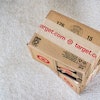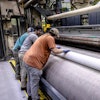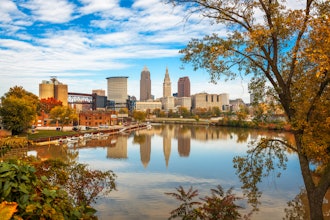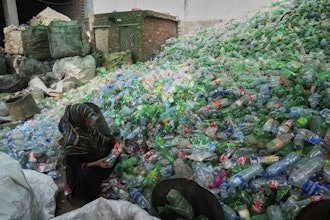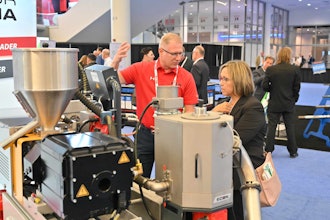
 Mark Brogan, Director of Technology and Innovation at Printpack
Mark Brogan, Director of Technology and Innovation at PrintpackFood Manufacturing had the opportunity to correspond with Mark Brogan, Director of Technology and Innovation at Printpack, to understand what role packaging plays in preventing food waste and its overall impact on sustainability.
Is food waste becoming a more important consideration among consumers?
MB: While recycling has historically taken the lead in sustainability issues, people are finally starting to realize that food waste is a significant problem and must be addressed as well. Food waste has doubled per person over the last 40 years.[1] Today, up to 40 percent of the food supply is not consumed, sending billions of pounds of food to the landfill.[2]
Fortunately, awareness is growing. According to a recent Mintel study, a majority of consumers stated that they were concerned or very concerned about the amount of food wasted.1 A majority of consumers even state they would pay more for packaging with features such as resealability or portion control. This stems from both concern for the environment as well as a drive to reduce wasted spending, as food waste costs Americans around $160 billion each year.[3]
What are some of the solutions the industry is implementing?
MB: As awareness grows, the industry is moving to implement food waste prevention strategies. A crucial part of those strategies will be the utilization of packaging solutions that can best prevent food spoilage. Brands must be aware of all the packaging options at their disposal and apply the packaging best suited for their product life cycle. For instance, multi-layered films can provide enhanced protection against the myriad ways that food can be spoiled — air, moisture, and sunlight. Reclosable packaging allows consumers to preserve freshness and extend the life of a product by fully utilizing the barrier properties of the package for the duration of the product’s use. Flexible packaging better enables multi-layered films and offers more reclosable options than rigid. The format also offers more options to right-size a package. This promotes a design that perfectly fits the food product, better protecting it from movement and damage and reducing the amount of oxygen present within the package.
How does reducing food waste impact recyclability and overall sustainability scores?
MB: Consumers don’t always associate packaging with sustainability. However, in many cases, food waste can have a worse impact on the environment than packaging — filling landfills and producing large amounts of methane. Research at Karlstad University has even shown that, “packaging that is altered in order to reduce food losses can lessen the total environmental impact and lead to large environmental gains.”[4]
In terms of recyclability, new packaging technologies are making important strides in the right direction. For instance, Printpack recently debuted a polyethylene pouch designed for compliance with the How2Recycle store drop-off recycling stream. In addition to providing easy recyclability, the package can also be equipped with customizable options for moisture barriers, oxygen barriers and closures to better preserve contents and combat food waste. The recyclability appeal of the pouch comes from its single-material structure. Multiple materials can contain non-recyclable substances which are hard to separate when recycling.
How can brands take the first step in reducing food waste?
MB: One of the most important steps a brand can take is selecting the right suppliers and engaging them early in the product development stage. Ensure your partners understand your markets and are capable of meeting your product’s specific needs.
About Printpack
Founded in 1956 and headquartered in Atlanta, GA, Printpack is a privately held manufacturer of flexible and specialty rigid packaging. Employing over 3,200 associates worldwide, the company operates 21 manufacturing facilities in the United States, Mexico and China. By combining our unique insights into consumer preference with advanced technological capabilities, Printpack can heighten brand recognition and help capture market share. Learn more at printpack.com.
[1] Hower, Mike. "Harris Poll: Americans More Worried About Food Waste Than Air Pollution."
[2] http://www.usda.gov/oce/foodwaste/faqs.htm
[3] http://www.usda.gov/oce/foodwaste/faqs.htm
[4] http://ameripen.org.s192845.gridserver.com/wp-content/uploads/BPT-Reducing-Food-Waste.pdf

